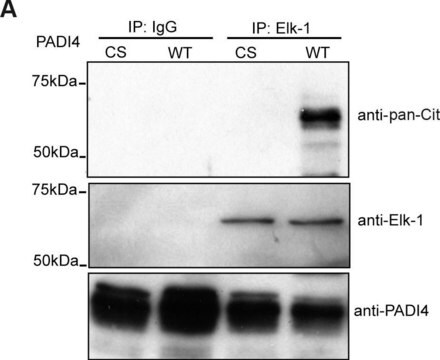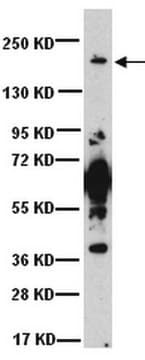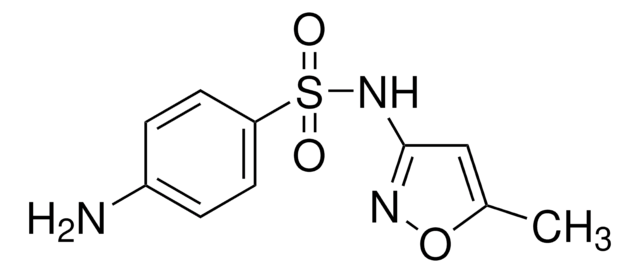217594
Anti-CD44 Rat mAb (A020)
liquid, clone A020, Calbiochem®
About This Item
Recommended Products
biological source
rat
Quality Level
antibody form
purified antibody
antibody product type
primary antibodies
clone
A020, monoclonal
form
liquid
contains
≤0.1% sodium azide as preservative
species reactivity
canine, bovine, human, rabbit, porcine, mouse
manufacturer/tradename
Calbiochem®
storage condition
OK to freeze
avoid repeated freeze/thaw cycles
isotype
IgG2b
shipped in
wet ice
storage temp.
−20°C
target post-translational modification
unmodified
Gene Information
bovine ... Cd44(281057)
dog ... Cd44(403939)
human ... CD44(960)
mouse ... Cd44(12505)
pig ... Cd44(100525150)
General description
Immunogen
Application
Flow Cytometry (1:1000)
Immunoblotting (1:1000)
Immunofluorescence (1:200)
Immunohistochemistry (1:250)
Immunoprecipitation (1:200)
Neutralization Studies (see comments and application references)
Radioimmunoassay (1:5000)
Packaging
Warning
Physical form
Reconstitution
Other Notes
Bourguignon, L.Y.W., et al. 1993. J. Immunol.151, 6634.
Legal Information
Not finding the right product?
Try our Product Selector Tool.
Storage Class Code
12 - Non Combustible Liquids
WGK
nwg
Flash Point(F)
Not applicable
Flash Point(C)
Not applicable
Certificates of Analysis (COA)
Search for Certificates of Analysis (COA) by entering the products Lot/Batch Number. Lot and Batch Numbers can be found on a product’s label following the words ‘Lot’ or ‘Batch’.
Already Own This Product?
Find documentation for the products that you have recently purchased in the Document Library.
Our team of scientists has experience in all areas of research including Life Science, Material Science, Chemical Synthesis, Chromatography, Analytical and many others.
Contact Technical Service








